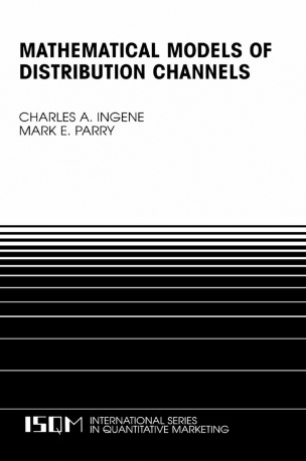
Mathematical Models of Distribution Channels
Publication year: 2005
ISBN: 978-0-387-22790-0
Internet Resource: Please Login to download book
In Chapters 1 and 2 the authors provide an introduction to the current, analytical literature on distribution channels, and they present an intuitively appealing prologue to the Channel Myths that are developed rigorously in later Chapters. In Chapters 3, 4, and 10 they extend the literature by ascertaining the relationship between the manufacturer-optimal wholesale-price strategy and channel breadth. Specific analyses include multiple, non-competing retailers, multiple states-of-nature, and multiple, competing retailers. In Chapters 5-7 the authors determine the profitability of various wholesale-price strategies; this analysis culminates in Chapters 8 and 9 with the determination of the (very limited) conditions under which channel coordination can be optimal for the manufacturer. In Chapter 11 they prove that existing methods of measuring the effect of a change in the degree of inter-retailer substitutability are totally misleading. They then develop an original, theoretical basis for measuring the impact of a change in the degree of inter-retailer substitutability that yields insightful, intuitively appealing results. In Chapter 12 the authors set forth an agenda for future research based on a meta-model that embraces all existing models in the literature. They also issue an appeal for creation of a "Unifying Theory of Distribution Channels" that will enable researchers to work independently and yet to contribute toward the common goal of deepening the marketing science professions’ understanding of distribution channels.
Subject: Business and Economics, Marketing, Monopol, Retail, Channel Myths, Distribution Channels, Franchizing, Game theory, Industrial Organization, Philosophy of Mathematical Modelling, Price Theory and strategy, Supply-Chain Management